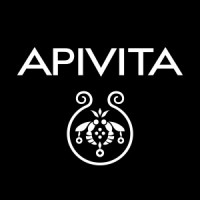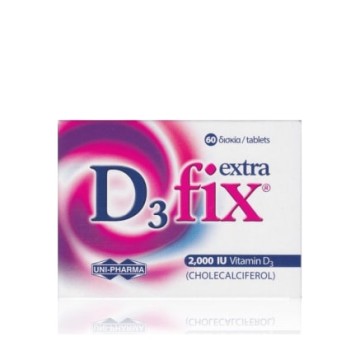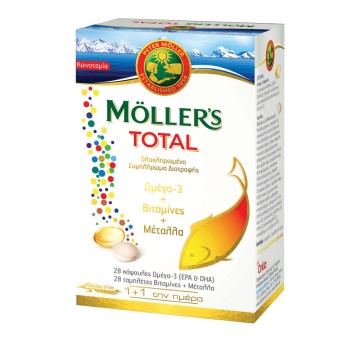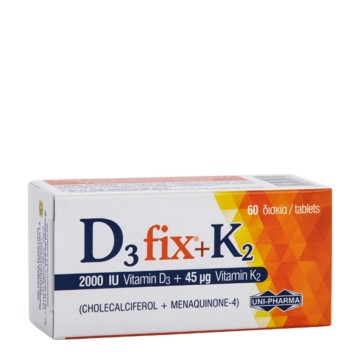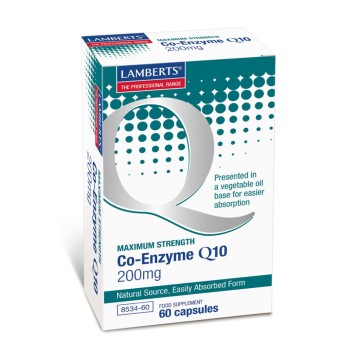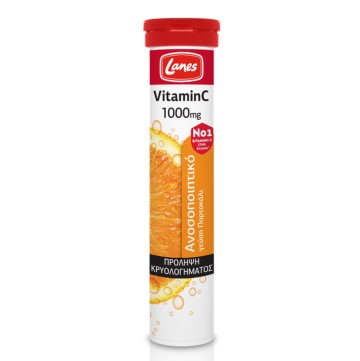Free shipping on orders over 39.00€
Intermittent Fasting: Risks and Alternatives

| Table of Contents |
|---|
Η intermittent fasting is one method for losing weight and improving health. It is a dietary practice that involves alternating periods of fasting and feeding. Although it appears to offer benefits, there are also caveats about possible negative effects.
Weight Loss and Health Improvement
Η intermittent fasting, a diet method that alternates periods of feeding and fasting, has shown impressive results health benefits, mainly in weight reduction and improvement of various biological indicators. The 16:8 diet, one of its most popular forms, limits the eating period to eight hours, while the remaining sixteen hours of the day are fasted. This pace has been linked to a significant reduction in weight and blood pressure, as the body turns to stored fat for energy, promoting fat burning.In addition to weight loss, intermittent fasting it appears to improve other health indicators as well. Specifically, the reduction of postprandial glucose is an important benefit, as high values after eating can increase the risk of diabetes type 2, a condition closely linked to obesity and unhealthy diet.
In addition, the intermittent fasting may improve sensitivity to insulin, allowing the body to manage glucose better. This in turn can reduce the risk of chronic metabolic diseases such as type 2 diabetes and obesity. Fasting also encourages autophagy, a process in which cells remove and recycle old or damaged elements, promoting cell regeneration and reducing inflammatory processes.
It is important to mention that the intermittent fasting it is not a "one size fits all" approach. The success of the method may vary from person to person, which is why an individualized approach and expert advice before adopting this nutritional strategy. The total quality and quantity of nutrition during the feeding period remains equally important to maintain a balanced and healthy diet.
How is Intermittent Fasting done?
Η intermittent diet is a flexible approach to nutrition, based on the alternating rhythm of feeding and fasting. There are several methods, the most popular of which include:- the 16:8 method (fasting for 16 hours and feeding for 8 hours),
- the 5:2 method (five days of normal diet and two days of minimal calorie restriction)
- the alternate day fasting (fasting every other day).
During fasting periods, it is recommended to avoiding intake of food and drinks that contain calories, allowing only the consumption of water, calorie-free drinks and black coffee.
The goal of the method is to alternate periods of fasting with periods of normal eating, thus allowing the body to use up stored energy and regulate metabolism. This practice encourages a more conscious relationship with food, as it requires planning and self-control in food consumption.
16:8 Method Interval Diet Diet
Intermittent fasting weekly schedule| Decimal | Lunch | Afternoon | Dinner | |||||||
|---|---|---|---|---|---|---|---|---|---|---|
|
1st Choice |
Toast bread thin slice 2 pcs. Turkey 30 g. Dirollo cheese 30 g. Notes: 13:00 p.m |
Stuffed (tomatoes, peppers, zucchini) 350 g. Light feta slice 30 g. |
Dried plums 3 pcs. (metric) Notes: or 1 glass of natural juice |
Egg 2 pcs. Salad 2 fl. Olive oil 3 tbsp. Cottage cheese with 4.5% fat 1/2 fl. Notes: 21:00 p.m |
||||||
|
2st Choice |
Toast bread thin slice 2 pcs. Turkey 30 g. Dirollo cheese 30 g. Notes: 13:00 p.m |
Grilled fish 200 g. Boiled potato 1.5 fl. Salad 2 fl. Olive oil 3 tbsp. Notes: Fish (weighed without bones), 150g potatoes |
Dried plums 3 pcs. (metric) Notes: or 1 glass of natural juice |
Toast bread thin slice 2 pcs. Turkey 30 g. Dirollo cheese 30 g. Yogurt from milk with 2% fat 180 g. Notes: 21:00 p.m |
||||||
|
3st Choice |
Toast bread thin slice 2 pcs. Turkey 30 g. Dirollo cheese 30 g. Notes: 13:00 p.m |
Whole grain spaghetti 1.8 fl. Tomato sauce 2 tbsp. Salad 2 fl. Olive oil 3 tbsp. Cottage cheese with 4.5% fat 0.3 fl. Notes: 250g spaghetti, 2 tbsp cottage cheese |
Dried plums 3 pcs. (metric) Notes: or 1 glass of natural juice |
Egg 2 pcs. Salad 2 fl. Olive oil 3 tbsp. Cottage cheese with 4.5% fat 1/2 fl. Notes: 21:00 p.m |
||||||
|
4st Choice |
Toast bread thin slice 2 pcs. Turkey 30 g. Dirollo cheese 30 g. Notes: 13:00 p.m |
Black-eyed beans 300 g. Cottage cheese with 4.5% fat 0.3 fl. Salad 2 fl. Olive oil 3 tbsp. Notes: 2 sq. cottage |
Dried plums 3 pcs. (metric) Notes: or 1 glass of natural juice |
Toast bread thin slice 2 pcs. Turkey 30 g. Dirollo cheese 30 g. Yogurt from milk with 2% fat 180 g. Notes: 21:00 p.m |
||||||
|
5st Choice |
Toast bread thin slice 2 pcs. Turkey 30 g. Dirollo cheese 30 g. Notes: 13:00 p.m |
Chicken fillet 200 g. Krispies nuts 2 pcs. Olive oil 3 tbsp. Salad 2 fl. |
Fruit 1 pc. (MIC.) Notes: or 1 glass of natural juice |
2 chicken straws 150 g. Salad 2 fl. Olive oil 2 tbsp. Notes: 21:00 p.m |
||||||
|
6st Choice |
Toast bread thin slice 2 pcs. Turkey 30 g. Dirollo cheese 30 g. Notes: 13:00 p.m |
Oatmeal 1.8 fl. Tuna fresh/Canned in water 120 g. Olive oil 3 tbsp. Salad 2 fl. Notes: 200g of oatmeal |
Fruit 1 pc. (MIC.) Notes: or 1 glass of natural juice |
Notes: FREE LUNCH |
||||||
|
7st Choice |
Toast bread thin slice 2 pcs. Turkey 30 g. Dirollo cheese 30 g. Notes: 13:00 p.m |
Butterfly steaks Pork 200 g. Rice (cooked) white or brown 1 fl. Salad 2 fl. Olive oil 3 tbsp. Notes: 140g of rice |
Fruit 1 pc. (MIC.) Notes: or 1 glass of natural juice |
Egg 2 pcs. Salad 2 fl. Olive oil 3 tbsp. Cottage cheese with 4.5% fat 1/2 fl. Notes: 21:00 p.m |
||||||
Potential Risks to the Immune System
Nevertheless, there are indications that the intermittent fasting can have negative effects on immune system. Studies in mice have shown that skipping breakfast can cause a significant decrease in monocytes in the blood, as well as their migration to the bone marrow, causing increased inflammation upon re-entry into the circulation.Alternative Methods: Low Calorie Diet
Η low calorie diet, as alternative to intermittent fasting, aims at the conscious reduction of daily intake calories. This diet approach focuses on consuming fewer calories than the body burns, creating an energy deficit that leads to weight loss. Low-calorie diets usually recommend eating between 1,200 - 1,500 calories the day for the Women and between 1,500 - 1,800 calories for men, depending on individual characteristics and nutritional needs.This method has proven popular and feasible for many, mainly due to its simplicity and flexibility. It can be implemented without the need for strict rules or complicated eating regimens, as long as calories are tracked. Furthermore, the low calorie diet encourages the consumption of nutrient-dense foods such as fruits, vegetables, proteins and healthy fats, thus offering significant health benefits.
The advantages of a low-calorie diet include boosting heart health and reducing the risk of chronic diseases, such as hypertension, hyperlipidemia, etc type 2 diabetes. Additionally, weight loss through a low-calorie diet can improve mobility, reduce joint pain, and improve overall quality of life.
It is important to emphasize that, despite its benefits, a low calorie diet it must be approached with care and always be personalized according to the individual needs and health conditions of each person. Consult one specialist nutritionist or doctor before starting a low calorie diet, especially if you have underlying medical conditions or are taking medication.
Conclusions
Η intermittent fasting it can offer health and weight loss benefits, but its adoption should be done with caution and a judicious assessment of potential risks. Alternative methods, such as low-calorie diets, may be a better option for some people, especially those who find intermittent fasting difficult. Always consult your doctor before changing your eating habits, especially if you have underlying medical problems.Find on wecare.gr the appropriate ones vitamins that you need!
Sources:
- 1) Intermittent Fasting: What is it, and how does it work? - Johns Hopkins
- 2) Intermittent Fasting - Healthline
- 3) Intermittent fasting: What are the benefits? - Mayo Clinic
- 4) What Is Intermittent Fasting? Explained in Simple Terms - Healthline
- 5) Six ways to do intermittent fasting - Medical News Today
- 6) Intermittent fasting - Harvard University
- 7) How To Lose Weight - WebMD
Liability Disclaimer
The content of this website does not constitute and cannot be construed as medical advice, diagnosis, treatment or suggestion.
All information is provided to readers by healthcare professionals for informational purposes only. This content is not intended to be a substitute for personalized medical advice, diagnosis, prognosis or treatment.





